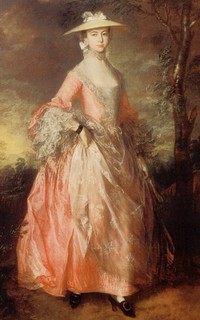
Parliament and government
ParliamentIt generally met in the afternoon and could go on late, and even past midnight.
1765 Jan 10th
20th May, king was supposed to come to prorogue Parliament but the silk weavers were rioting. He didn't come and didn't go to St James's to hold court. However, he issued a proclamation enjoining the JPs of London, Westminster, Middlesex and Surrey to exert themselves to prevent unlawful and riotous assemblies.
21st, distributed in the streets. Order was restored.
25th, King to HofL and prorogued Parl to 17th Aug.
Then postponed to 24th October, then to 12th Dec.
The meeting on the 21st Dec lasted until 2 am.
"All members of parliament, in order that they may attend the public service of their country, have the privilege for themselves and their menial servants, of being freed from arrests, attachments, imprisonments, &c. for debts, trespasses, &c. but not from arrests for treason, felony, and breach of the peace: however, it is ordained by statute, that actions may be commenced, in any of the courts ofWestminster, againstpersons intitled to privilege of parliament, after a prorogation or dissolution, till a new parliament is called, or thefame become re-assembled; and likewise after an adjournment for above fourteen days; and the respective courts, in such a case, have power to proceed to judgment, &c. Here the process is to be summons distress infinite, 8cc. till the parties shall enter an appearance; and for default thereof, the real or personal estate of the defendant may be sequestered; though the plaintiff may not, in that case, arrest the body of any member of parliament: 12 William III. c- 3.
If they disagree, the affair is null; but if they agree, this, with rhe other bills that have passed both houses, is brought down to the king in the house of lords, who comes thither clothed in his royal robes; before him the clerk of the parliamentreads the title of each bil!, and as he reads, the clerk of the crown pronounces ne royal assent or dissent. If it be a public bill, the royal assent is given in these words, Le roy le veut, the king will have it so; if private, Soit fait comme il eft defirt, let the request be complied with: if the king refuse the bill, the answer is, Le roy s'avifera, the king will think of it: and if it be a money-bill, the answer is, Le roy remercie ses Icyaux fujets, accepte leur benevolence, cif aujji le veut; the king thanks his loyal subjects, accepts their benevolence, and therefore grants his consent."
The Complete Dictionary of Arts and Sciences, Volume 2.